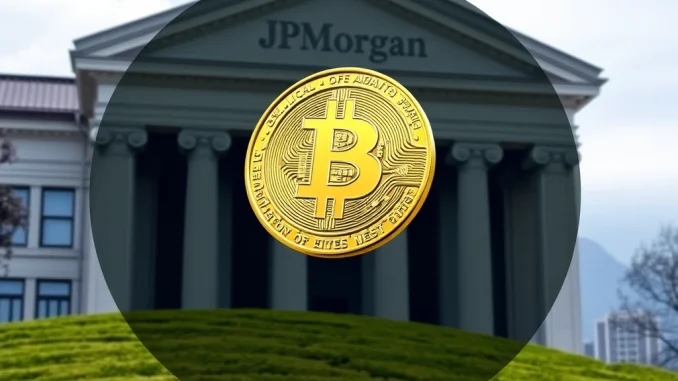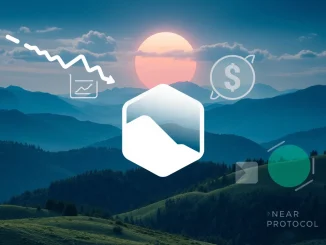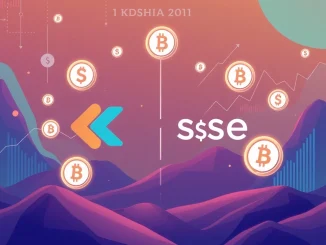
Big news from the world of traditional finance meeting digital assets: JPMorgan is making a significant move. The banking giant plans to pilot a deposit token, a digital representation of a traditional bank deposit, leveraging blockchain technology. This initiative, reportedly on a blockchain linked to Coinbase, signals a growing interest from major financial institutions in the potential of tokenized assets.
What Exactly is a Deposit Token?
Think of a deposit token as a digital twin of the money you hold in a traditional bank account. Instead of entries in a bank’s internal ledger, your deposit is represented by a token on a distributed ledger, or blockchain. Here are a few key points:
- It’s backed 1:1 by actual fiat currency held at the bank.
- It aims to offer the stability of traditional money with the benefits of digital assets.
- It differs from stablecoins (often issued by non-banks) and central bank digital currencies (CBDCs – issued by central banks).
These tokenized deposits could potentially enable faster, cheaper, and more programmable transactions compared to current systems.
JPMorgan’s Expanding Blockchain Strategy
This pilot isn’t JPMorgan‘s first foray into the blockchain space. The bank has been actively exploring distributed ledger technology for years, notably through its Onyx platform, which facilitates wholesale payments using a private blockchain. Piloting a deposit token represents a step towards potentially tokenizing commercial bank money itself, moving beyond just payment systems.
The reported use of a Coinbase-linked blockchain for this specific pilot is interesting, suggesting potential exploration of interoperability or specific platform capabilities, though details remain sparse.
Why is Bank Tokenization Gaining Traction?
The concept of bank tokenization, where traditional financial assets and liabilities are represented digitally on a blockchain, holds considerable promise for the financial sector. Key drivers include:
- Efficiency: Streamlining processes like payments, settlements, and securities trading.
- Programmability: Enabling ‘smart contracts’ to automate transactions and agreements.
- 24/7 Access: Potentially allowing transactions outside traditional banking hours.
- Reduced Counterparty Risk: Settlement could become more immediate.
As financial institutions look for ways to innovate and stay competitive, leveraging blockchain for core functions like deposits becomes a logical next step.
Exploring the Future of Digital Currency in Finance
JPMorgan’s pilot fits into the broader global conversation around digital currency and the future of money. While not a CBDC, a deposit token sits alongside other digital money forms like stablecoins and potential future commercial bank digital currencies. This experimentation by a major global bank like JPMorgan indicates a serious exploration into how these new forms of digital value can integrate with and improve existing financial infrastructure.
Challenges certainly exist, including navigating complex regulations, ensuring interoperability between different platforms, and achieving widespread adoption. However, the potential benefits for speed, cost, and innovation are driving this exploration forward.
What This Means for the Industry
A successful pilot could pave the way for wider adoption of tokenized deposits among financial institutions. It could change how businesses manage and move money, potentially leading to significant cost savings and new business models. For the blockchain space, it represents increasing validation and adoption by mainstream finance, albeit within controlled environments initially.
Conclusion: A Significant Step for JPMorgan and Tokenization
JPMorgan‘s plan to pilot a deposit token is more than just a technical experiment; it’s a tangible sign of how major banks are actively exploring the future of money and finance on the blockchain. By investigating tokenized deposits, they are positioning themselves at the forefront of bank tokenization, potentially shaping how we interact with digital currency in the years to come. This pilot is a crucial development to watch as the digital asset landscape continues to evolve.



